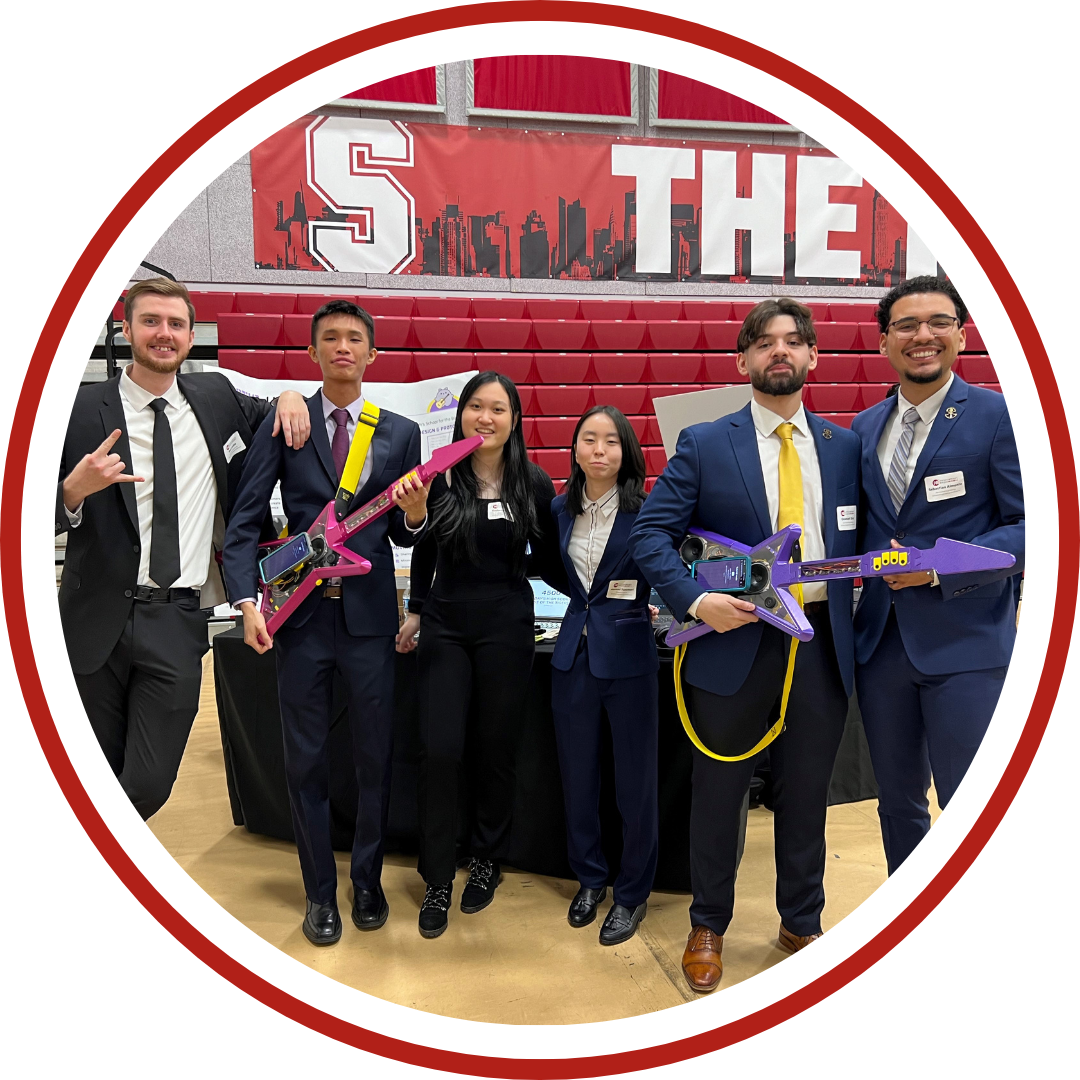Date: Thursday, July 11, 2024
Category: General
With another July comes another successful Student Design Challenge (SDC)!
What is the SDC? The SDC is an annual competition which provides undergraduate and masters-level students - representing disciplines including engineering; computer information science; architecture; and physical and occupational therapy - an opportunity to create, develop, and showcase assistive technology designs that help people with disabilities live more independent lives.
Entries are judged by a group of AT experts on originality, quality of design, and usefulness to persons with disabilities, and the top five SDC teams chosen as finalists have an opportunity to virtually present their design at both the Student Design Challenge and the Developers' Showcase. After presentations are complete, first, second, and third place rankings are awarded. These three teams are receive a monetary prize in addition to their complimentary RESNA student membership.
The first prize of $1,000 is supported by the Joey Wallace Educational Scholarship Fund, in honor of Joey Wallace, an educator, mentor and beloved RESNA staff person. RESNA would like to thank the Joey Wallace Scholarship Fund for their continued support of and investment in the future generation of assistive technology professionals. Read more about the Joey Wallace Educational Scholarship Fund.
RESNA is pleased to announce the 2024 SDC winners:
First Place: $1,000 winner

Haptic Hero
Institution: Stevens Institute of Technology
Authors: Richard He, Sebastian Almonte, Hasumi Tanemori, Emanuel Diaz, Kimberly Tsang, and Paul Leible
Abstract: Haptic Hero designed a music & rhythm-based video game created to be accessible to students who are visually impaired. The design takes inspiration from the existing game, Guitar Hero, and flips it with an accessible spin. Instead of prioritizing visual cues for gameplay, the game is focused on tactile cues (haptics) and audio cues, making it universally accessible for everyone, regardless of their visual abilities.
A major issue that Haptic Hero tackled is the lack of accessibility within the gaming industry. Although the industry has made great strides in its implementation of accessibility features, the issue lies with products not being developed from the beginning with accessibility in mind. While there are plenty of opportunities for sighted students, students with visual impairments lack the same options for community-based connections through entertainment devices. Our product can change this by providing previously unavailable and limited entertainment opportunities to schools and homes.
Second Place: $750

Sweep-It
Institution: University of Pittsburgh
Authors: Mariana Ospina Muriel and Matthew Kim
Abstract: For people who use wheelchairs and have limited hand function, dropping small items can be a significant issue. In particular, flat and/or round objects such as credit cards, coins, or pens are among the most challenging items to pick up. Existing pickup tools and techniques are prohibitively expensive, simply ineffective, or dangerous. Most existing major disadvantage is that it cannot be used by someone methods rely on hand function to squeeze a trigger, but a with limited hand function. To make things worse, limited hand function makes it even more difficult to keep hold of small objects and avoid frequent drops. After developing a concept inspired from competitive landscape analysis, rigorous design and prototyping processes were used to develop the Sweep-It. The Sweep-It is an accessory attachment to the Hook-It, an existing grabber tool that is designed for people with limited hand function. The functional prototype was manufactured by FDM 3D printing.
Third Place: $250

MagnaStrap
Institution: Rutgers University
Primary Author: Marise Isaac
Abstract: Individuals with conditions like spinal cord injury, cerebral palsy, or acquired brain injuries face fine motor impairments, impacting their ability to perform daily tasks independently. While the current universal cuff aids in holding items, it still demands fine motor skills for setup, limiting complete independence. To address this, a cuff utilizing magnets for quick item attachment and a new don/doff system without fine motor skills involvement is proposed. Stainless steel pieces on items attach magnetically to the cuff, simplifying usage, while a flexible, moldable material facilitates easy donning and doffing. The aim is for a one-size-fits-all design, compatible with commonly used household items.
Thank you to all of the 2024 Student Design Challenge particpants for a great year. Please check back in the fall for more information on the 2025 SDC!